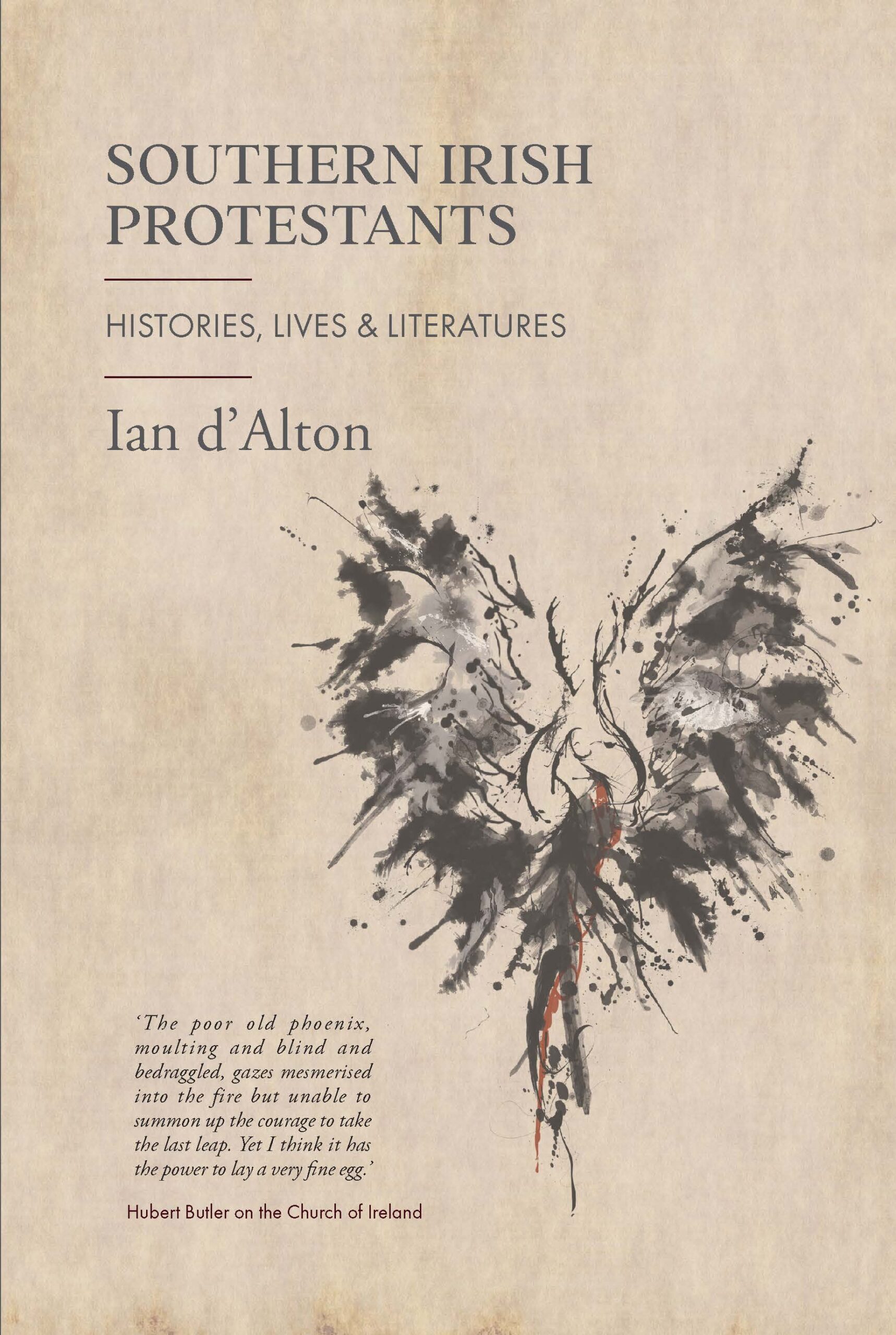IAN D’ALTON
Eastwood Books
€25
ISBN 9781916742505
Reviewed by
Henry A. Jefferies
Henry A. Jefferies is a Research Associate in History at Ulster University.

This is a collection of 21 essays, together with an introduction, by Ian d’Alton. They reflect the author’s personal journey of discovery as a ‘southern Irish Protestant’ (p. xx). D’Alton’s paternal grandfather was a Catholic, a bank manager in south County Dublin who married an Anglican in 1918 and had their children baptised into the Church of Ireland. The ‘faux-aristo surname, with its small “d”, apostrophe and capital “A”’, was a nineteenth-century affectation (p. xxiv). However, as a very young man in the mid-1960s d’Alton was handed a genealogist’s ‘interesting and somewhat disturbing’ report that revealed that his remote ancestors had been minor Protestant gentry (pp xxiii–xxiv). That may help to explain his fascination with the Protestant gentry and why their ghosts loom so very large in his work.
D’Alton’s book is comprised of several essays about the gentry, and literary considerations of the gentry, trying to understand how they lost their place and relevance in southern Ireland before Irish independence. In some essays he wonders aloud whether they might have done otherwise. He declares that ‘the inevitability of tragedy has been overblown’ (p. 45). He holds Anglo-Irish fiction about the gentry, such as Bowen’s Court, to be at least partly responsible for that misconception because it ‘has become a cliché, a distorting lens … a deliberate representation of the introverted integrity of a cause lost a long time ago’ (p. 166). At the same time, he admits that Protestants realised that their privileges depended ultimately on ‘the British military presence’ in Ireland (p. 253). It is salutary to be reminded that in County Cork alone there were thirteen British military barracks and camps before the Great War, not to mention the numerous RIC barracks, to keep the ‘natives’ in thrall. The secular trend towards greater democracy in the United Kingdom in the nineteenth century inexorably undermined the inherently anti-democratic Protestant ascendancy in Ireland and caused it to crumble ‘in slow motion from 1880 to 1920’ (pp 45, 61, 81). Indeed, this entire book focuses on the responses of Protestants in southern Ireland to the ‘slow puncture’ of that ascendancy as ‘one disaster followed another’, including Catholic Emancipation, the disestablishment of the Church of Ireland, the loss of land and ‘big houses’, the Great War, the 1916 Rising and finally Irish independence (rear cover). Nonetheless, the Protestant gentry were already irrelevant before the 1916 Rising. D’Alton states that ‘Southern Protestantism’s political importance, except to itself, was ephemeral. It had little separate political identity per se for at least twenty years before the end of the Union, and none after’ (p. 90). One could suggest that southern Protestants’ instinctive deference to their social betters left them rudderless once the gentry disengaged, voluntarily or otherwise, from public affairs.
D’Alton’s judgement on the 1916 Rising is that ‘One hundred years of propaganda, bad or non-existent history and Hollywood have had their effect in retrospectively giving the Rebellion a form of legitimacy despite its profoundly anti-democratic nature and moral dubiousness’ (p. 227). Southern Irish Protestants generally struggled to find their place in independent Ireland, and many felt themselves to be neither here nor there: ‘“There” was a place they had been, and many still hankered after. “Here” was where they found themselves, and they had to make the best of it. Broadly, they did’ (p. 128). D’Alton shows that some southern Protestants were contemptuous of the ‘natives’ and considered them unfit to govern the country, even after the British military withdrawal from the Irish Free State in 1922. ‘Contained in their [Protestant] DNA was leadership and a certain élitism that could not easily be foresworn’ (p. 124). Colonial mind-sets changed but very slowly.
Nonetheless, the Protestants in independent Ireland formed a privileged minority. In d’Alton’s words, ‘Protestant generally meant prosperous’ (p. 121). Although they formed only 7% of the population of the Free State in 1926, Protestants held almost 33% of the largest farms. Between 20% and 50% of professional men were Protestants. Protestant privilege was manifested in a myriad of ways, for example by the fact that 60% of car owners in Cork in 1916 were Protestants. Wealthy Protestant parents could provide their sons with large farms or remunerative employment, or at least they could afford to fund post-primary education followed by study in Trinity College, Dublin, or Oxbridge. It was not until the advent of free education in the Republic of Ireland from 1967 that a more level pitch was created for all young Irish people. Interestingly, it was his time in Cambridge University in the early 1970s that made the young Ian d’Alton succumb ‘to the émigré’s disease of feeling more “Irish” than “southern” or “Protestant”’ (p. xxxiii).
In this book d’Alton observes that ‘Identities are now much more fluid, often interpreted and expressed in terms of gender, sexuality, cultural affinity, even diet and lifestyle choices’, and self-identification as a southern Irish Protestant has a somewhat quaint ring to it (p. xx)! As to the future, he is equivocal, but anyone who attends a Church of Ireland service, with its invariably sparse congregation of elderly souls, will concur with Jim Beckett’s forecast that Protestantism is ‘dwindling, in all appearance, towards a painless extinction’ (p. 91). It all makes for an interesting story.
